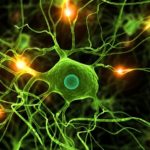According to a study, published in the journal Genome Medicine, a team of researchers at Rutgers University was able to develop an artificial intelligence (AI) method that may provide more insight into Crohn’s disease.
Crohn’s disease, an inflammatory bowel disease, is characterized by various traits that can affect any part of the gut. It is estimated that the disease could affect close to 800,000 adults in the U.S., according to the study’s co-authors.
As such, researchers have pivoted their attention to AI for a more comprehensive understanding of identifying and treating Crohn’s disease. For the study, the team investigated genetic signatures associated with the illness in 111 participants. Using a machine learning method, known as AVA,Dx (Analysis of Variation for Association with Disease), they uncovered genes associated with the disease not been previously discovered.
With the new data, researchers were able to predict the presence of Crohn’s disease, with up to 99% accuracy, among patients with the disease. The findings suggest that the AI method developed by researchers may improve accuracy among people at risk of Crohn’s disease.
“It is clear that future inclusion of the effects of regulatory, synonymous, and copy number variants is likely to improve AVA,Dx performance,” the findings detail. “Finally, we suggest that the AVA,Dx approach to model building is not limited to Crohn’s disease, but is rather applicable to a wide spectrum of genetically linked, potentially rare and complex, diseases.”
Yana Bromberg, a co-author of the study, added: “Our method is not a clinical diagnosis tool, but it generates interesting observations that need to be followed up.”
“Further experimental work could reveal the molecular reasons behind some forms of Crohn’s disease and, potentially, lead to better treatments of the disease.”


